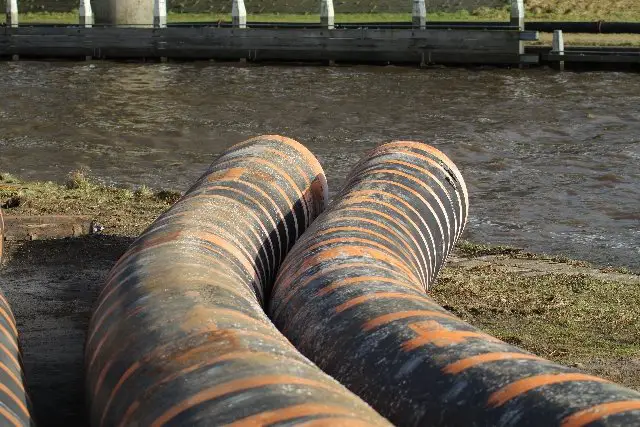Last Updated on July 9, 2023 By Emma W. Thomas
If your house smells like gasoline then Several reasons can cause this smell, including gas leaks, fuel spills, malfunctioning appliances, or storage of gasoline near living areas. To identify the source, ensure all appliances are in working order, check fuel storage areas, and inspect gas lines for leaks. If a gas leak is suspected, evacuate the premises immediately and contact the gas company for assistance.
What would cause a house to smell like gas?
Several things can cause a house to smell like gas. Let’s have a look at some of the most common ones.
1. Gas spillage from the car in the garage
When your house smells like gasoline, there’s a gasoline spillage somewhere. When looking for the source of the gas smell, start from the garage. Maybe your car has a mechanical problem causing it to leak gas even when stationary. If this is the case, call a mechanic. It is also possible that you spilled gasoline on your car accidentally. If this is the case, you must clean it up as soon as possible to eliminate the smell.
If the spillage is inside the car, open the doors to let in air, soak up the spilled fuel with a clean rug, and wipe down the spot using a mixture of hot water, vinegar, and baking soda. You can also opt to use a deodorizer to mask the smell. If the gas spill is on the outside, wipe it down with a clean towel, then rinse with a towel soaked in a mixture of vinegar and hot water in equal parts.
2. Lawnmower engine oil is leaking
Another common source of gasoline smell is the lawnmower. Check the deck of the lawnmower for any oil spills from the reservoir or crankcase. If the lawn mower’s oil reservoir is filled to the brim, it will likely leak and cause a gasoline smell in the garage and all around the home. The seal could also be faulty, causing it to leak oil, or the lawn mower was tipped incorrectly.

If you notice the lawn mower is leaking, locate where the leak is coming from, then drain the oil. Clean the lawn mower, remove any faulty parts, and replace them before adding new oil.
3. Gas leak from the supply
If you use natural gas or propane in your home, you might smell gasoline when there’s a gas leak. Gas leaks are dangerous as they cause damage to property and loss of lives every year in the United States. Reports have shown that incidents resulting from natural gas pipeline leakage cause about $133M in property damage and 17 fatalities yearly.
If you suspect a gas leak in your home, turn off the gas valves and leave the house right away. Contact your local gas supplier to shut off the gas and send a licensed plumber to repair the leak.
4. Sewage leak
Homes with sewer problems commonly experience a sulfuric odor that smells like rotten eggs and can easily be mistaken for gasoline. If the strongest odor is coming from the sewers or drainage system, call your plumber and report the problem to have it checked.

5. Spilled gas cans
Gas cans and portable fuel containers come in handy when buying and storing gasoline. Most drivers have a gas can to store extra fuel, and these cans are prone to spilling. A gas can spill gasoline when the lid isn’t tight enough, when it is too full, or when it’s not secure while transporting.
If you smell gasoline in your house, check for the gas cans and see if there’s one that spilled.
6. Gasoline stains on clothes
Your house could smell like gasoline when some of your clothes have gasoline stains. If you accidentally spill gasoline on your clothes at the gas station, the smell could linger on for days. Check your dirty clothes basket to see if there’s any cloth stained with gasoline.
To get rid of the smell on your clothes, blot out the gasoline using a paper towel and soak the cloth in a mixture of water and vinegar for about an hour. Wash the cloth separately and hang it outside to dry. It may take a few washes before the smell goes away completely, but washing will reduce the smell in the house.
7. Garbage bags with rotten eggs or meat
Rotting food, especially meat and eggs, have microbes that produce hydrogen sulfide gas. This gas has a characteristic smell that closely resembles that of gasoline. Check the trash if your house smells like gasoline, but you are sure there’s no spillage anywhere. You might have to take the trash out and clean the trash cans with detergent and bleach to eliminate the smell.
8. Dead animals in the yard
Animals such as rats and other rodents produce various gases as they decompose. These gases include methane and hydrogen sulfide, which smell like gasoline. Sometimes your house smells like gasoline because there’s a dead animal either inside the house or outside in your yard.
People living in rat-infested cities such as Chicago, Los Angeles, New York, and Washington are likelier to experience these smells, especially in warm weather. If you live in any of these areas, contact pest control experts to help you out.
9. Malfunctioning septic tank
Did you know that your septic tank produces gases that smell so much like gasoline? If there’s a plumbing problem in the septic tank, septic odors will find their way into your house. A plumber will help you identify any faults in the septic and repair them so that the house no longer smells like gasoline.
10. A water heater that is rarely used
If you have a water heater that you rarely use, sulfate bacteria can grow inside the tank, causing it to produce a gasoline smell when the faucets are turned on. These bacteria come from untreated water or water that sits in the tank for too long. To get rid of this smell, call a plumber from the water heater company to come and open the tank for cleaning.

What to do if you can smell gas in your home
If you smell gasoline in your home, you must take precautions to ensure everyone is safe from the toxic fumes and any fires that may arise. Inhaling gasoline fumes is harmful to your health and may cause gasoline poisoning. Below are the steps to take when you smell gasoline in your home:
- If the odor is too strong, leave the premises immediately and call for help after you’re safe
- When you only smell hints of gasoline, open the windows and doors to ensure the house is well ventilated
- Do not use lighters, matches, and other ignition sources around the house until you know the source of the odor to avoid fires. Remember, gas fumes can travel far, and igniting a spark may cause fire from the source of the smell.
- Find out where the smell is coming from and work to resolve the problem; if it comes from the garage, check your vehicle; if it’s a plumbing problem, call a technician.
How do you get rid of the gasoline smell in your house?
To get rid of the gasoline smell in your house, follow these steps:
- Ventilation: Open windows and doors to allow fresh air to circulate throughout the house. Use fans or turn on exhaust fans to facilitate air movement and help disperse the smell.
- Remove the Source: If there is a visible gasoline spill, clean it up immediately using absorbent materials like paper towels or rags. Dispose of the soiled materials properly in an outdoor trash container.
- Clean Surfaces: Wipe down any surfaces that may have come into contact with gasoline, such as floors, countertops, or furniture, using a solution of mild dish soap and water. Rinse thoroughly to remove any residue.
- Wash Fabrics: Launder any clothing, bedding, or fabric items that have been exposed to gasoline. Use a strong detergent and an extra rinse cycle to eliminate the smell. If the odor persists, consider professional dry cleaning for certain items.
- Odor Absorption: Place bowls filled with baking soda or activated charcoal in affected areas. These substances can help absorb odors over time. Leave them in place for a few days and then discard them properly.
- Vinegar Solution: Mix equal parts of water and white vinegar in a spray bottle. Spray the solution in the air and on surfaces to neutralize the gasoline odor. Allow it to air dry or wipe it clean with a damp cloth.
- Air Purifiers: Consider using air purifiers or air fresheners designed to remove odors. Look for products that contain activated charcoal or specialized filters to help eliminate lingering smells.
- Professional Assistance: If the gasoline smell persists or if you suspect a significant spill or leak, it is essential to contact professionals, such as a fire department, hazardous materials team, or a qualified restoration company, to assess and address the situation.
Remember, gasoline odors can be harmful and potentially dangerous. If the smell is strong or persistent, or if you suspect a gas leak, evacuate the premises immediately and contact the appropriate authorities or gas company for immediate assistance.

Safety precautions when handling gasoline
Gasoline is quite dangerous when mishandled; the National fire protection association has released worrying statistics of damage caused by gasoline. Every year, about 150,000 fires in the US are caused by gasoline, causing hundreds of deaths and property damage.
Handling gasoline safely will help to reduce these incidences and keep us safer. Here’s what you can do:
- Only use gasoline in well-ventilated areas
- Never use gasoline as a solvent to clean
- Do not smoke or light matches near gasoline
- Store gasoline in well-ventilated areas with approved containers; never store gasoline in plastic or glass bottles.
- Never store gas cans in the car
Final word
The gasoline smell in the house can be a sign of danger; always work swiftly to find out where the smell is coming from and get rid of it. Always handle gas safely to ensure your home is safe from fires caused by gasoline and the environment is free from harmful fumes.
References:
https://www.angi.com/articles/how-to-get-rid-gas-smell.htm
https://www.thisoldhouse.com/plumbing/21312420/what-does-a-gas-leak-smell-like
Emma is a graduate of Domestic Science or Family and Consumer Sciences (Home Economics) from the University of Wisconsin. She has 7 years of experience Working with the strategic section of BestBuy and now writing full-time for Homeeon.
From Managing the Home, Interiors, Cleaning, and Exteriors to Gardening and everything about Making A Home Liveable – is her passion and this Homeeon is the result of this.
Emma loves decorating her home with the best stuff found online. She cares about quality over anything and writes reviews about them here in Homeeon. Get in touch with her over Pinterest.
Keep reading her blogs.

